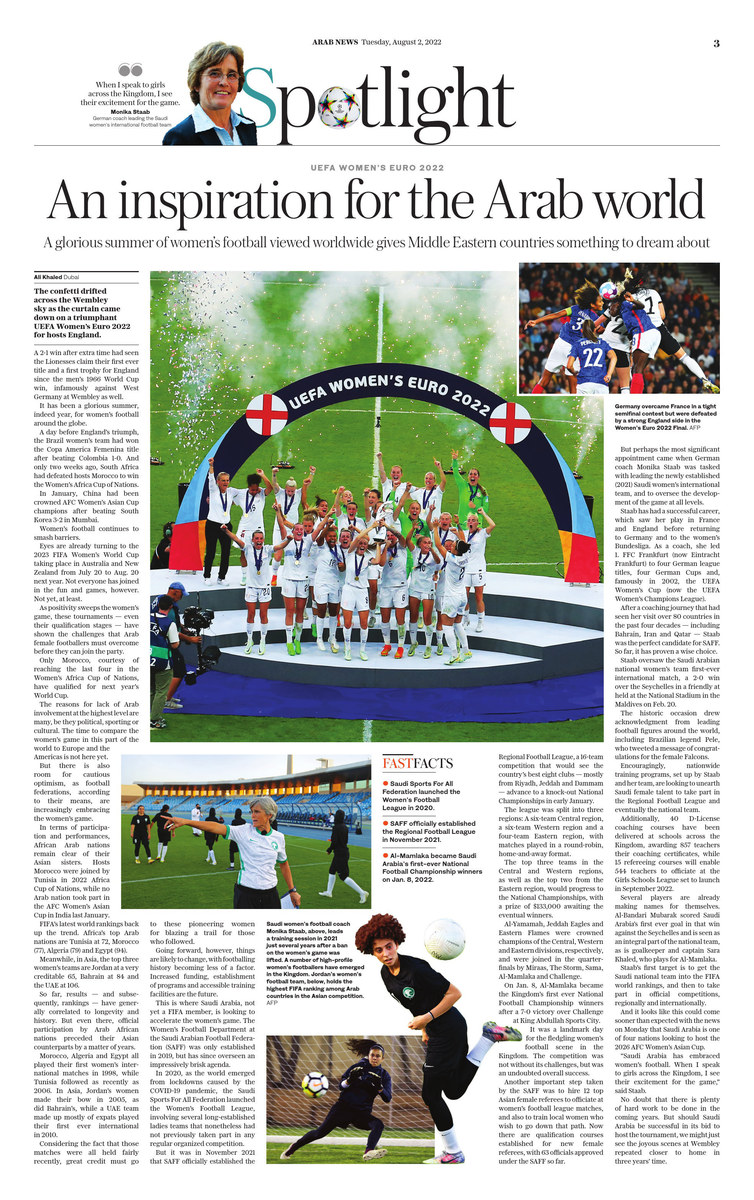DUBAI: For sports fans across the Arab world, the announcement on Monday of Saudi Arabia’s intention to bid for the 2026 Asian Football Confederation Women’s Asian Cup was a fitting finale to one of the most exciting weeks in the history of women’s football.
Just days earlier, the confetti drifted across the Wembley sky as the curtain came down on a triumphant UEFA Women’s Euro 2022 for hosts England. A 2-1 win after extra time had seen the Lionesses claim their first ever title and a first trophy for England since the men’s 1966 World Cup win, infamously against West Germany at Wembley as well.
It has been a glorious summer, indeed year, for women’s football around the globe.
A day before England’s triumph, the Brazil women’s team had won the Copa America Femenina title after beating Colombia 1-0. And only two weeks ago, South Africa had defeated hosts Morocco to win the Women’s Africa Cup of Nations.
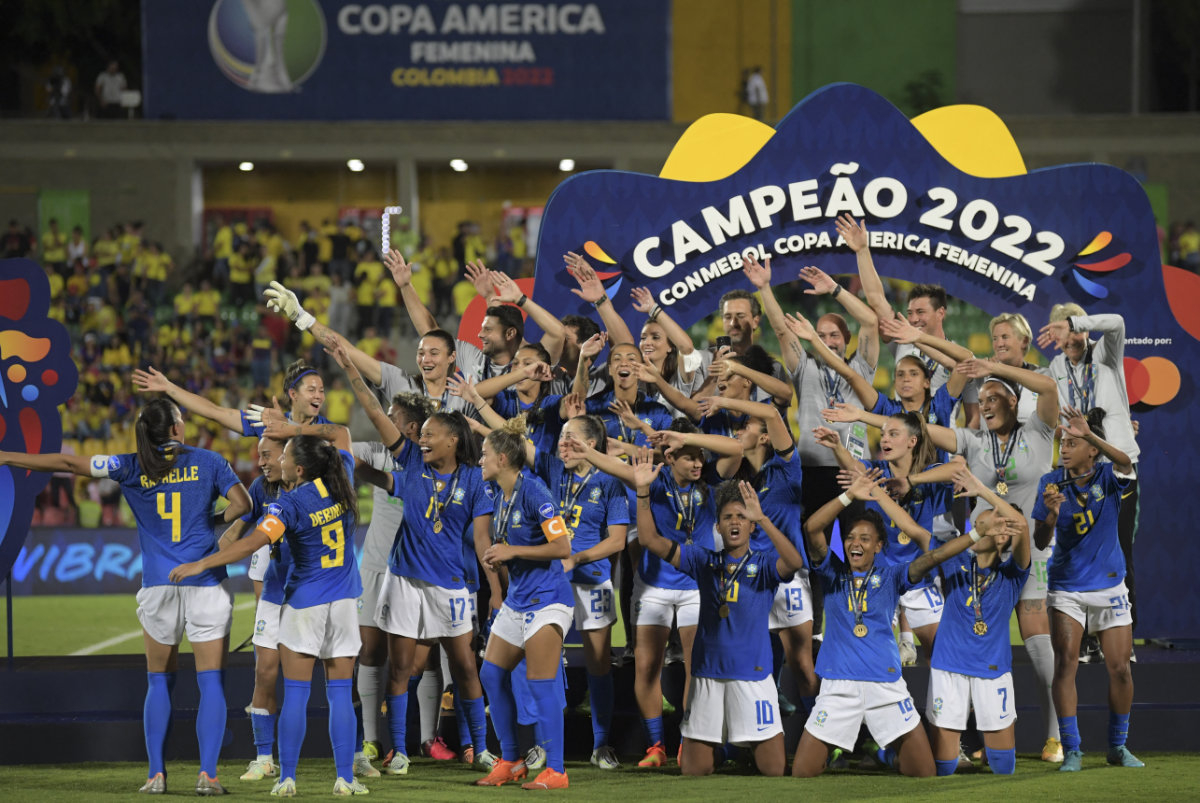
Brazil's players celebrate after winning the Conmebol 2022 women's Copa America football tournament final match against Colombia ain Bucaramanga, Colombia, on July 30, 2022. (AFP)
n January, China had been crowned AFC Women’s Asian Cup champions after beating South Korea 3-2 in Mumbai.
Women’s football continues to smash barriers.
Eyes are already turning to the 2023 FIFA Women’s World Cup taking place in Australia and New Zealand from July 20 to Aug. 20 next year. Not everyone has joined in the fun and games, however. Not yet, at least.
As positivity sweeps the women’s game, these tournaments — even their qualification stages — have shown the challenges that Arab female footballers must overcome before they can join the party.
Only Morocco, courtesy of reaching the last four in the Women’s Africa Cup of Nations, have qualified for next year’s World Cup.
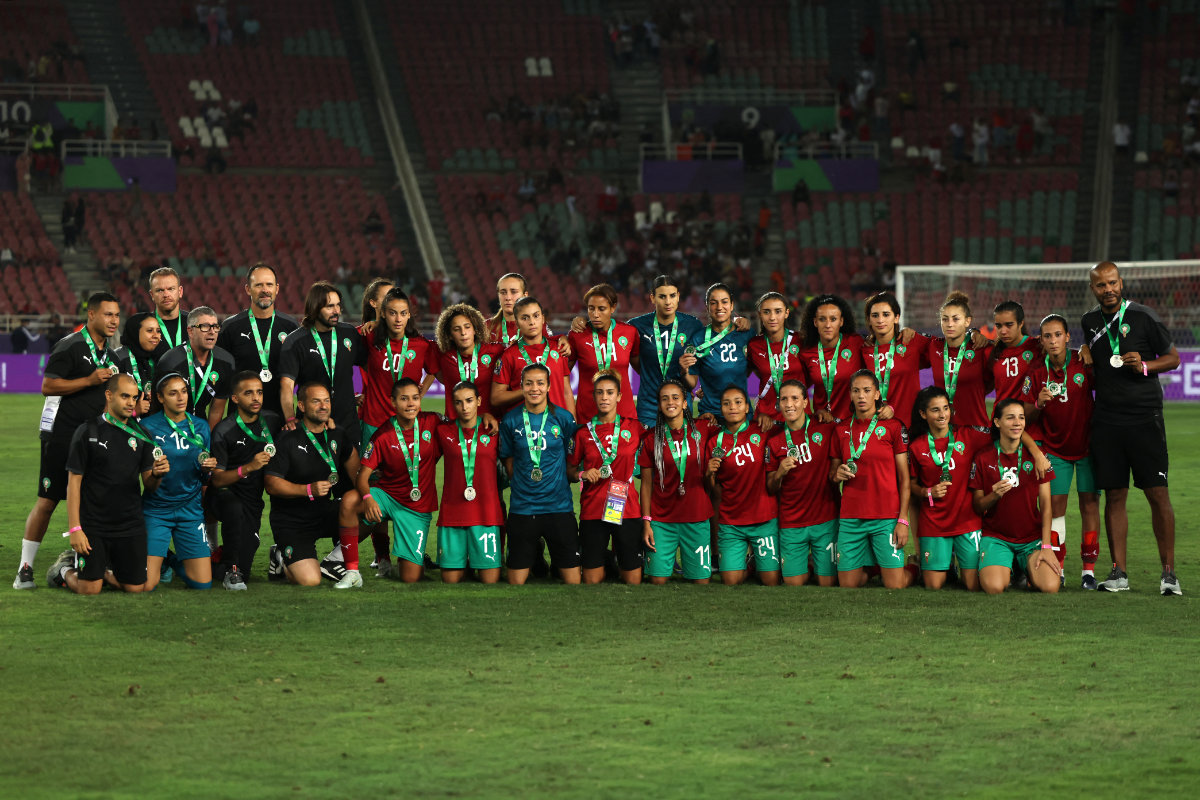
Morocco's team members pose for a picture after their loss in the 2022 Women's Africa Cup of Nations final football match with South Africa in Rabat on July 23, 2022. (AFP)
The reasons for lack of Arab involvement at the highest level are many, be they political, sporting or cultural. The time to compare the women’s game in this part of the world to Europe and the Americas is not here yet.
But there is room for cautious optimism, as football federations, according to their means, are increasingly embracing women’s football.
In terms of participation and performances, African Arab nations remain clear of their Asian sisters. Hosts Morocco were joined by Tunisia in 2022 Africa Cup of Nations, while no Arab nation took part in the AFC Women’s Asian Cup in India last January.
FIFA’s latest world rankings back up the trend. Africa’s top Arab nations are Tunisia at 72, Morocco (77), Algeria (79) and Egypt (94).
Meanwhile, in Asia, the top three women’s teams are Jordan at a very creditable 65, Bahrain at 84 and the UAE at 106.
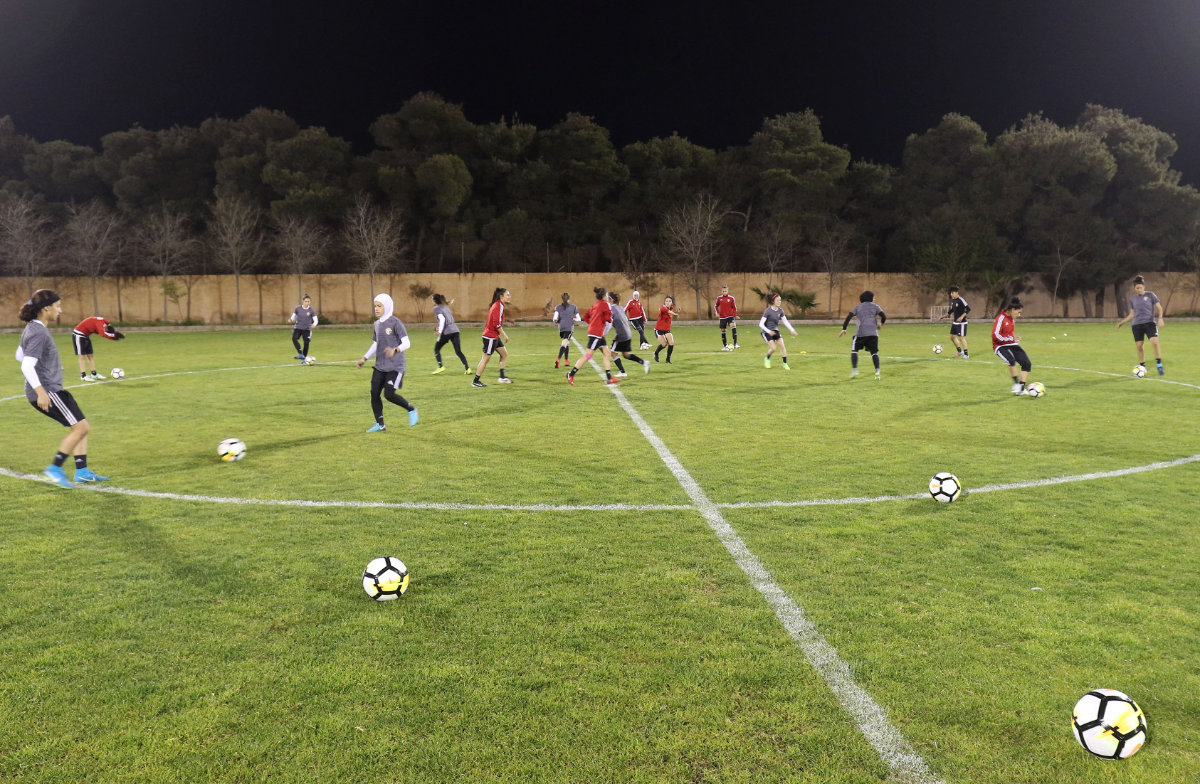
Jordan's women football team take part in a training session in Amman. (AFP file photo)
So far, results — and subsequently, rankings — have generally correlated to longevity and history. But even there, official participation by Arab African nations preceded their Asian counterparts by a matter of years.
Morocco, Algeria and Egypt all played their first women’s international matches in 1998, while Tunisia followed as recently as 2006. In Asia, Jordan’s women made their bow in 2005, as did Bahrain’s, while a UAE team made up mostly of expats played their first ever international in 2010.
Considering the fact that those matches were all held fairly recently, great credit must go to these pioneering women for blazing a trail for those who followed.
Going forward, however, things are likely to change, with footballing history becoming less of a factor. Increased funding, establishment of programs and accessible training facilities are the future.
FASTFACTS
Saudi Sports For All Federation launched the Women’s Football League in 2020.
SAFF officially established the Regional Football League in Nov. 2021.
Al-Mamlaka became Saudi Arabia’s first ever National Football Championship winners on Jan. 8, 2022.
This is where Saudi Arabia, not yet a FIFA member, is looking to accelerate the women’s game. The Women’s Football Department at the Saudi Arabian Football Federation (SAFF) was only established in 2019, but has since overseen an impressively brisk agenda.
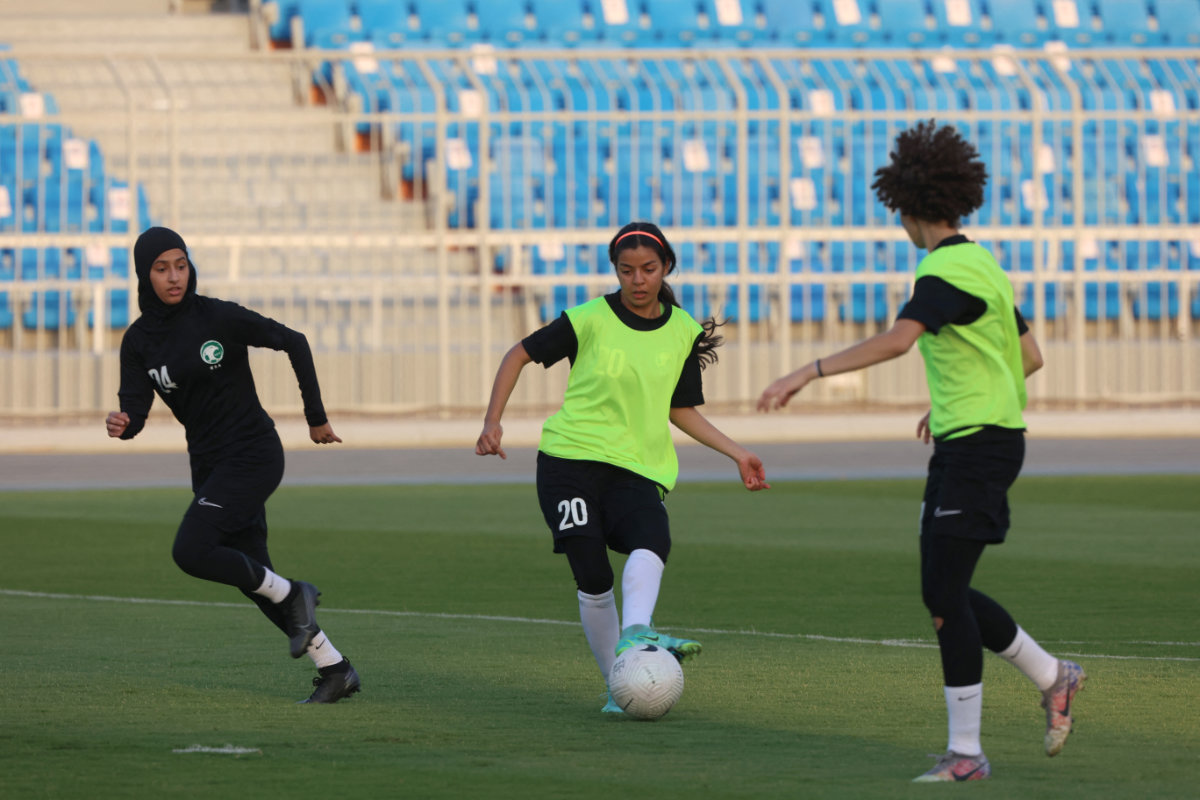
Players of the first Saudi Women's National Football Team attend a training and show off their skills at Prince Faisal bin Fahad bin Abdulaziz stadium in Riyadh on Nov. 2, 2021. (AFP)
In 2020, as the world emerged from lockdowns caused by the COVID-19 pandemic, the Saudi Sports For All Federation launched the Women’s Football League, involving several long-established ladies teams that nonetheless had not previously taken part in any regular organized competition.
But it was in November 2021 that SAFF officially established the Regional Football League, a 16-team competition that would see the country’s best eight clubs — mostly from Riyadh, Jeddah and Dammam — advance to a knock-out National Championships in early January.
The league was split into three regions: A six-team Central region, a six-team Western region and a four-team Eastern region, with matches played in a round-robin, home-and-away format.
The top three teams in the Central and Western regions, as well as the top two from the Eastern region, would progress to the National Championships, with a prize of $133,000 awaiting the eventual winners.
Al-Yamamah, Jeddah Eagles and Eastern Flames were crowned champions of the Central, Western and Eastern divisions, respectively, and were joined in the quarter-finals by Miraas, The Storm, Sama, Al-Mamlaka and Challenge.
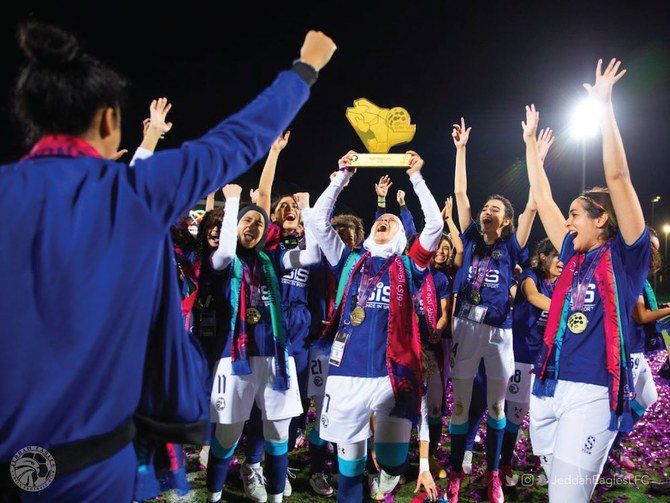
Jeddah Eagles celebrate winning the Western division of the inaugural Regional Football League in Saudi Arabia. (Supplied)
At almost 11 p.m. on January 8, Al-Mamlaka became Saudi Arabia’s first ever National Football Championship winners after a 7-0 victory over Challenge at King Abdullah Sports City in Jeddah.
It was a landmark day for the fledgling women’s football scene in the Kingdom. The competition was not without its challenges, but was an undoubted overall success.
Another important step taken by the SAFF was to hire 12 top Asian female referees to officiate at women’s football league matches, and also to train local women who wish to go down that path. Now there are qualification courses established for new female referees, with 63 officials approved under the SAFF so far.
But perhaps the most significant appointment came when German coach Monika Staab was tasked with leading the newly established (2021) Saudi women’s international team, and to oversee the development of the game at all levels across the Kingdom.
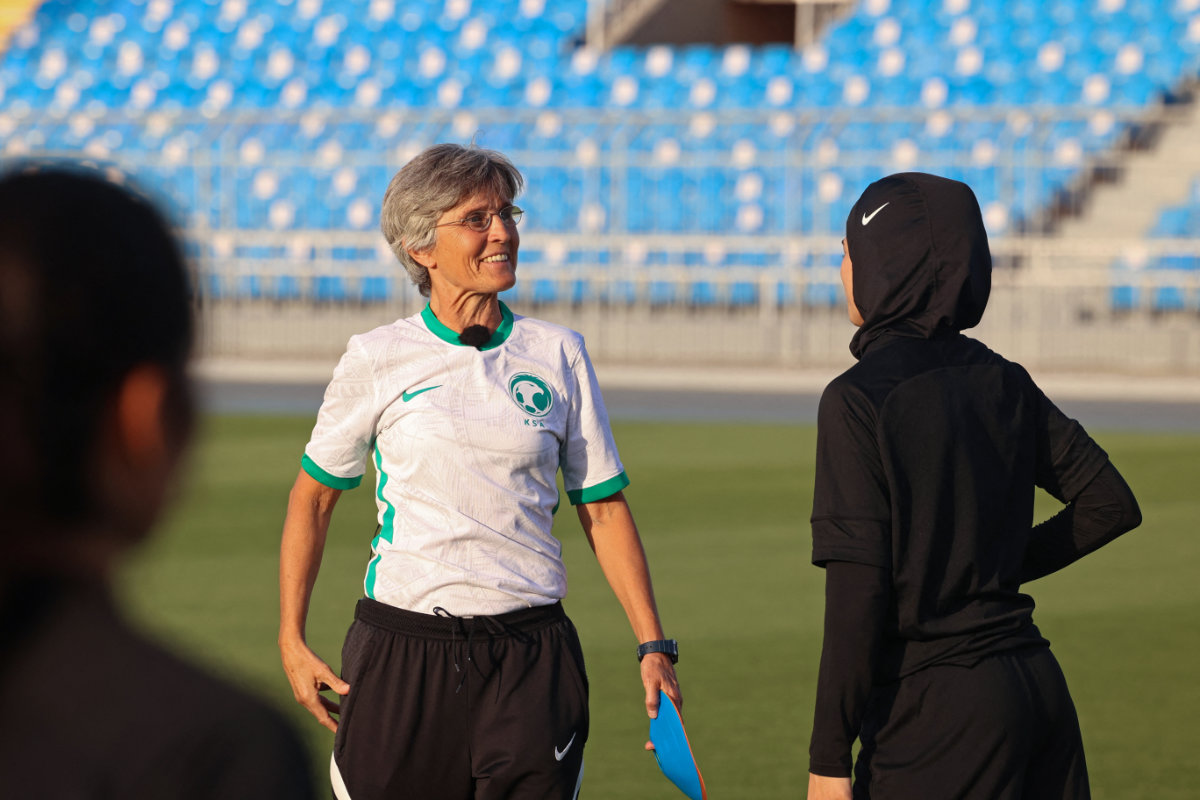
Saudi women’s football coach Monika Staab (left) leads a training session in 2021 just several years after a ban on the women’s game was lifted. (AFP)
Staab has had a successful career, which saw her play in France and England before returning to Germany and to the women’s Bundesliga. As a coach, she led 1. FFC Frankfurt (now Eintracht Frankfurt) to four German league titles, four German Cups and, famously in 2002, the UEFA Women’s Cup (now the UEFA Women’s Champions League).
After a coaching journey that had seen her visit over 80 countries in the past four decades — including Bahrain, Iran and Qatar — Staab was the perfect candidate for SAFF. So far, it has proven a wise choice.
Staab oversaw the Saudi Arabian national women’s team first-ever international match, a 2-0 win over the Seychelles in a friendly at held at the National Stadium in the Maldives on Feb. 20.
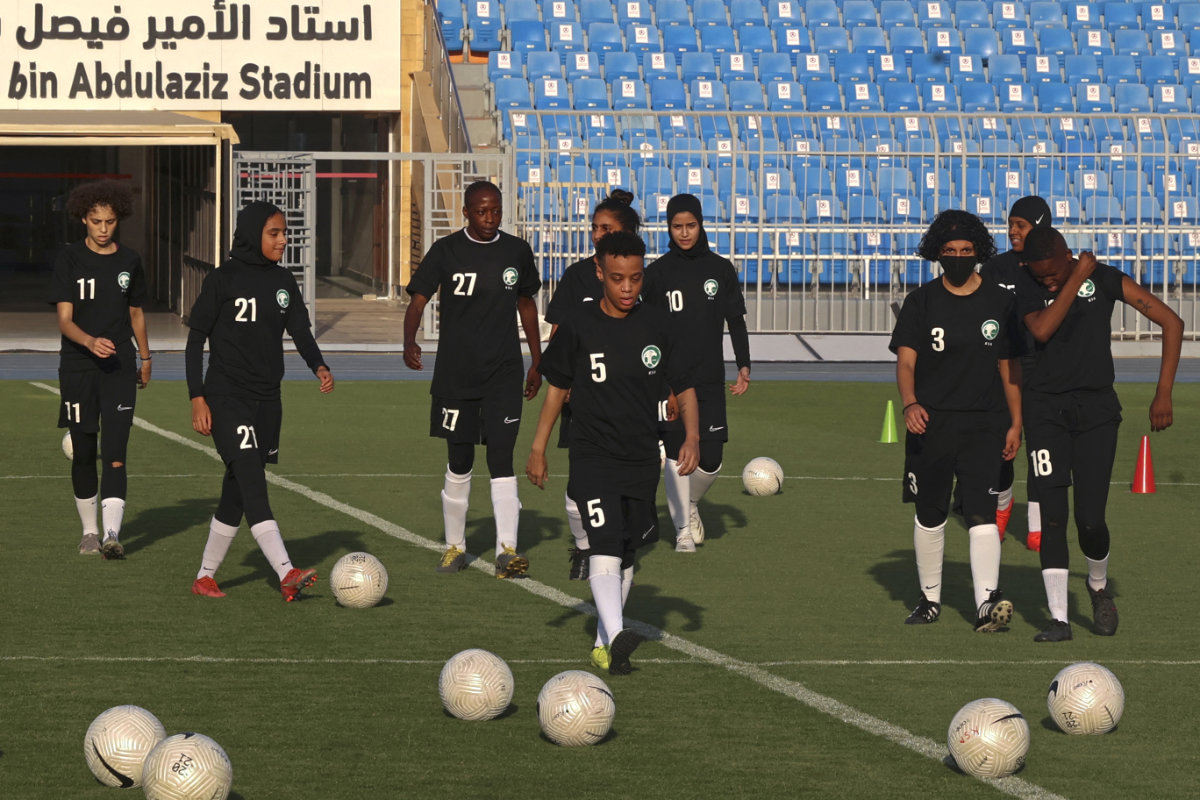
Players of the first Saudi Women's National Football Team attend a training and show off their skills at Prince Faisal bin Fahad bin Abdulaziz stadium in Riyadh on Nov. 2, 2021. (AFP)
The historic occasion drew acknowledgment from leading football figures around the world, including Brazilian legend Pele, who tweeted a message of congratulations for the female Falcons.
Encouragingly, nationwide training programs, set up by Staab and her team, are looking to unearth Saudi female talent to take part in the Regional Football League and eventually the national team.
Additionally, 40 D-License coaching courses have been delivered at schools across the Kingdom, awarding 857 teachers their coaching certificates, while 15 refereeing courses will enable 544 teachers to officiate at the Girls Schools League set to launch in September 2022.
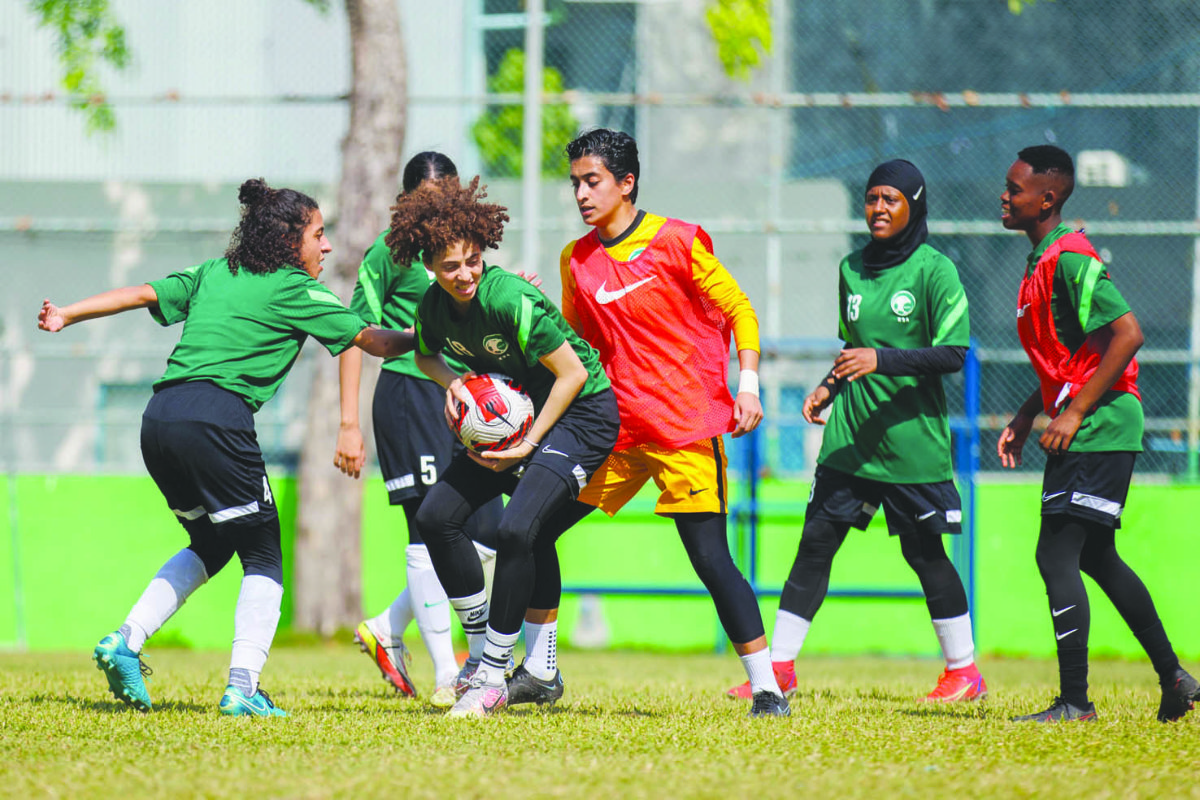
Players of the first Saudi Women's National Football Team attend a training and show off their skills in Riyadh. (SPA)
Several players are already making names for themselves. Al-Bandari Mubarak sc ored Saudi Arabia’s first ever goal in that win against the Seychelles and is seen as an integral part of the national team, as is goalkeeper and captain Sara Khaled, who plays for Al-Mamlaka.
Farah Jafri, of Jeddah Eagles, is another talent marked out for stardom. Meanwhile Leen Mohammed has emerged as the star of the Saudi Women’s Futsal National Team (established in 2019), which hosted and finished as runners-up in the 2022 West Asian Football Federation (WAFF) Women’s Futsal Championship.
There are others. Staab’s first target is to get the Saudi national team into the FIFA world rankings, and then to take part in official competitions, regionally and internationally.
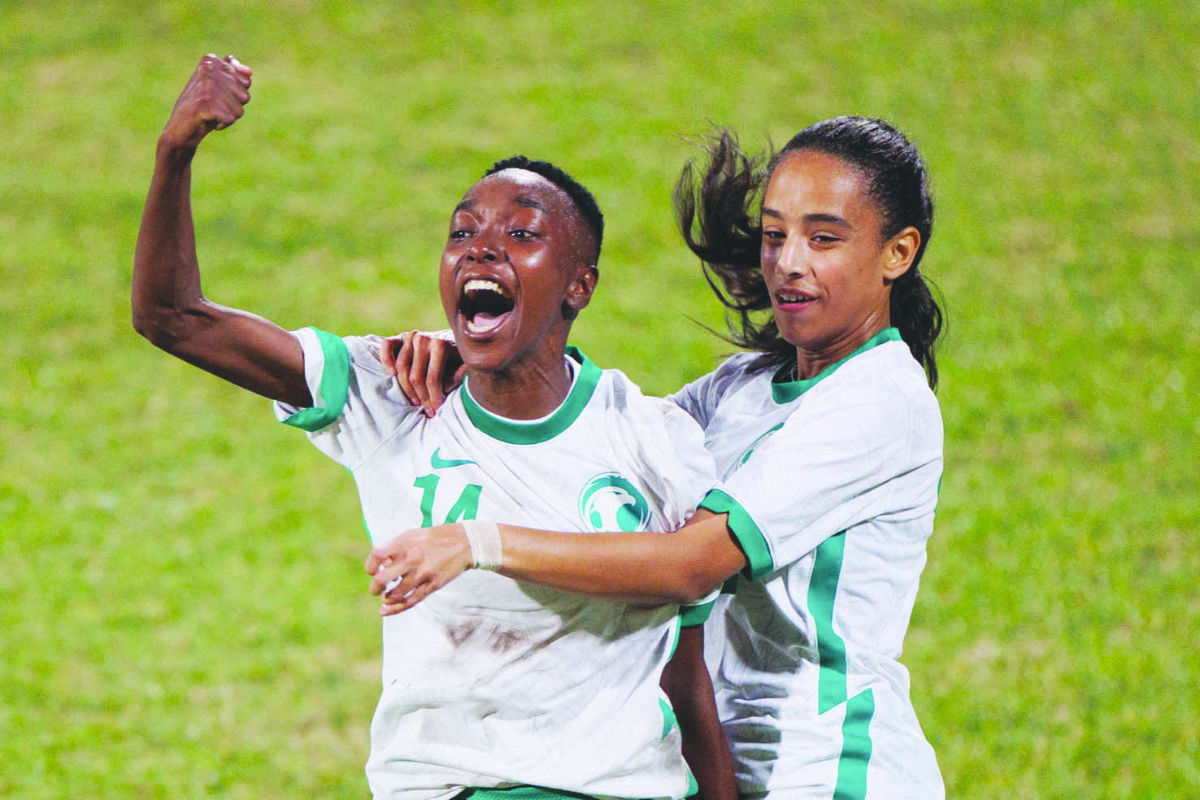
Players of the first Saudi Women's National Football Team attend a training in Riyadh. (SPA)
And it looks like this could come sooner than expected with the SAFF announcement on Monday of its intention to bid, making Saudi Arabia one of four nations, including Jordan, looking to host the 2026 AFC Women’s Asian Cup.
A host is expected to be confirmed by the AFC next year.
“Saudi Arabia has embraced women’s football. When I speak to girls across the Kingdom, I see their excitement for the game,” said Staab.
“The 2026 AFC Women’s Asian Cup is an unprecedented opportunity to inspire a generation of girls to achieve their football dreams.”
No doubt that there is plenty of hard work to be done in the coming years. But should Saudi Arabia be successful in its bid to host the tournament, we might just see the joyous scenes at Wembley repeated closer to home in three years’ time.
